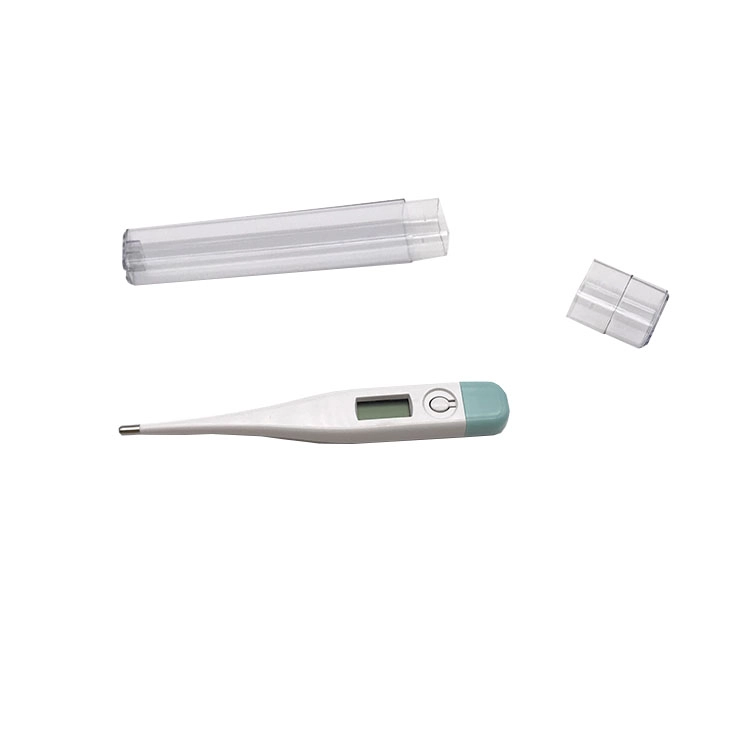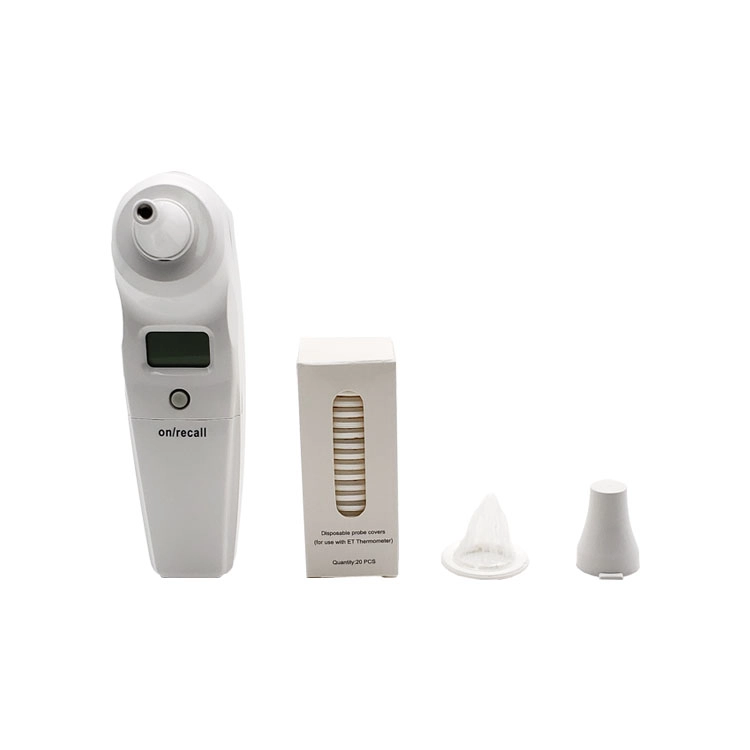Thermometer: The First Line of Defense for Your Health
Release time:
Sep 02,2025
Thermometers are essential tools for monitoring health, providing quick and accurate body temperature readings at home, in clinics, and in hospitals. Modern electronic thermometers offer fast, precise, and easy-to-read measurements, while infrared thermometers enable hygienic, non-contact monitoring ideal for public spaces and professional healthcare settings. With advancements in technology, thermometers are becoming smarter and more connected, allowing real-time tracking, data analysis, and better health management for both families and medical professionals. Choosing the right thermometer ensures safety, convenience, and reliable health monitoring.
When we start feeling unwell, one of the most immediate ways to check our condition is by measuring body temperature. Body temperature is one of the most direct indicators of overall health, and the thermometer is an essential tool for obtaining this data. Whether in hospitals, clinics, or at home, a reliable thermometer helps us detect potential health issues in time and safeguard our well-being.
In the past, glass mercury thermometers were common in almost every household. They were stable and inexpensive, but had clear drawbacks: measurements took longer, readings were not as intuitive, and if broken, mercury leakage posed health risks and environmental hazards. For safety and environmental reasons, mercury thermometers are being phased out globally, replaced by safer and more precise electronic thermometers and infrared thermometers.

Among the various types, electronic thermometers are widely favored for their safety, accuracy, and ease of use. They feature highly sensitive sensors and digital displays, providing accurate readings in just a few seconds—much faster and more intuitive than traditional mercury thermometers. Many models include memory functions to track previous readings, making it easy to monitor temperature trends over time. Advanced versions may offer ear, forehead, or oral measurement options to suit different user needs. Electronic thermometers are ideal for home use and are also commonly used in hospitals and clinics. For infants, the elderly, or anyone needing frequent monitoring, electronic thermometers offer fast, easy-to-read results, improving convenience while avoiding discomfort from long measurement times. Compared to traditional mercury thermometers, they are safer, environmentally friendly, and free of breakage risks. With technological advancements, modern electronic thermometers increasingly support smart connectivity, allowing users to sync data with mobile apps for remote health monitoring and trend analysis, providing comprehensive insights for both families and healthcare providers.

In addition to electronic thermometers, infrared thermometers have become popular due to their non-contact measurement capabilities. By detecting infrared radiation emitted by the body, infrared thermometers can measure temperature quickly without touching the skin. This makes them hygienic, safe, and particularly suitable for hospitals, clinics, schools, and public spaces where rapid screening is needed. During infectious disease outbreaks, infrared thermometers have proven especially valuable, improving efficiency while reducing the risk of cross-infection.
In medical settings, thermometers are indispensable for basic diagnostics. Doctors rely on continuous temperature monitoring to assess fever severity and duration, which informs diagnosis and treatment decisions. At home, timely temperature measurement helps detect common illnesses such as colds and fevers early, enabling prompt intervention and preventing worsening conditions. A small thermometer can thus serve as the first line of defense for family health.
Today, thermometer options are increasingly diverse, from basic digital thermometers to professional-grade medical infrared thermometers, and even smart devices that connect to mobile apps. Consumers can choose based on their needs: for household use, a safe, mercury-free electronic thermometer with fast measurement is ideal; hospitals, schools, and public institutions may prefer high-precision non-contact infrared thermometers; and for infants or the elderly, electronic thermometers with flexible probes or rapid measurement features are especially convenient.
Although body temperature is just a number, it is a critical signal in health management. With ongoing advancements in medical technology, thermometers are becoming smarter and more data-driven. They can not only monitor temperature in real time but also record and analyze trends, offering comprehensive health insights for both medical professionals and families. In the future, thermometers will not merely be measurement tools—they will serve as a vital bridge connecting individuals to the broader healthcare system.
Latest News

